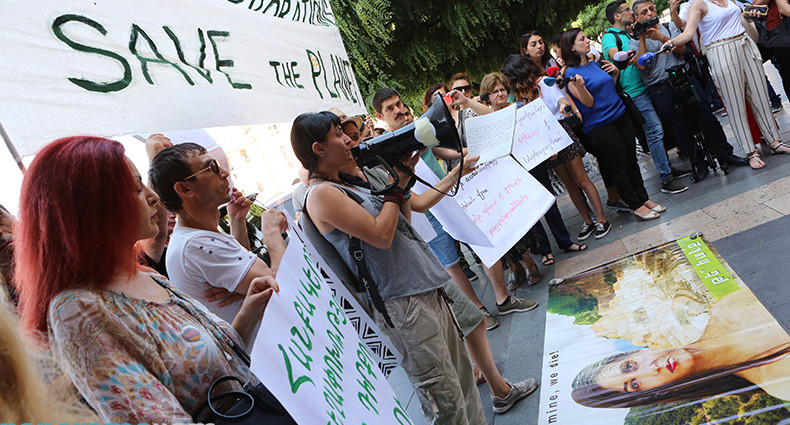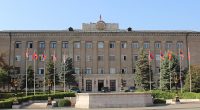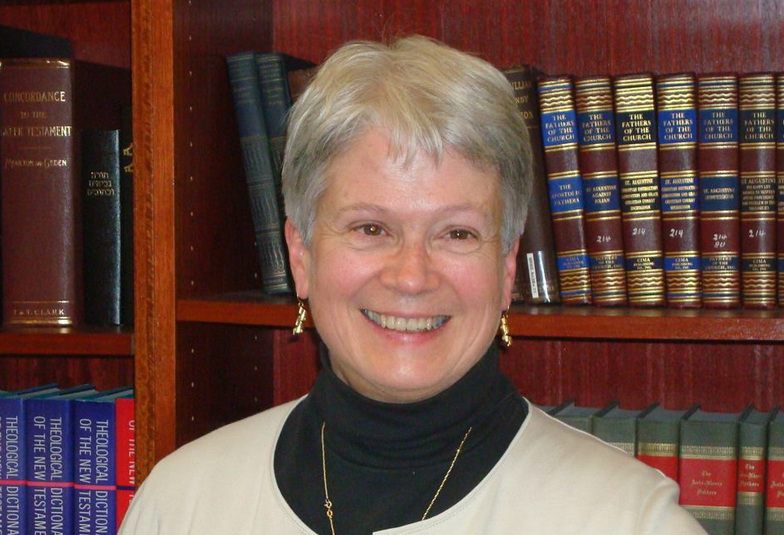In an interview with MassisPost, journalist and documentarian Arman Suleymanyan, discussed his 2017 documentary “Amulsar: State of Indifference,” and the current status of the controversial gold mining project by Lydian Armenia.
MP: Thank you for taking the time to speak with us Arman. What is the current state of Lydian’s mining operations in Amulsar?
AS: Lydian Armenia continues to do some work, they build some roads, but currently they are not mining at all.
MP: What is at stake, in terms of the negative impact on the environment, if Lydian is successful at starting the gold mining project at Amulsar?
AS: They didn’t research correctly the negative influence on two main rivers, Vorotan and Arpa. Nobody knows how deep they will pollute the rivers and the environment. Particularly Elard, [the environmental consulting firm in Lebanon] that was hired by the government, insists that their [Lydian] pollution modeling is not correct. Yet, Lydian insists that there will be almost no harm.
MP: Why was Lydian unsuccessful in starting mining operations in Georgia, Kosovo and Turkey?
AS: All the other countries rejected them for different reasons. The fact is that they have zero experience in mining, and they proclaim that they have found the richest gold mine [in Amulsar]. It is not true the richest gold mine is the Sotq mine [in the Gegharkunik region.]
MP: If most nations are phasing out mining, why is it that the former Armenian government approved Lydian’s mining activities?
AS: Environmental activists say that several laws were changed [by the former government] (you will see which laws in the documentary) for Lydian to cut expenses. Many people think there are crooked arrangements with the former government representatives. One of them, the former Minister of Nature [Environment] who has since fled the country.
MP: What is the current position of residents living in the Amulsar region?
Half of the population received compensation and they are satisfied, as they hope to receive good salaries. The other half is against the project. According to the law in Armenia, the entire population must approve the mining.
MP: How have Lydian’s operations in Gndevaz affected the people and the landscape there?
AS: Lydian has already cut many fruit trees for their cyanide ponds, and compensated [the villagers] for those gardens. People did not speak out against the project before the [velvet] revolution as they were afraid to. Now they understand that they will be forced to abandon their healthy living conditions, so they decided to block the path to the mining territory and have already blocked the roads for the past year.
MP: Is the new government assessing the risks involved with the Amulsar mining project as opposed to the former government?
AS: There are many lobbyists among the new government advocating for Lydian, that is why it is difficult to close the activities of the mine all at once.
MP: Do you think the Minister of Environment and current government will ask for a new Environmental Impact Assessment (EIA) and allow Lydian to proceed with the controversial gold mining project?
AS: A new EIA means failure for Lydian, as most of the people are not in agreement with the miners. They have no chance to pass the new EIA.
MP: Your 2017 documentary “Amulsar: State of Indifference” sheds light on the environmental risks regarding the Amulsar gold mining project. Do you think this has changed public opinion and raised awareness about the dangers of the project?
AS: Yes I think it changed everything. During the shooting many people said we are crazy, nothing is going to be changed, but now many of them are keeping the roads to Amulsar blocked, 24/7.
Arman Suleymanyan is the current host of “Hard Talk,” on ParaDiplomacy TV in Armenia. He has been a correspondent for various media outlets, such as Radio Van and Civilnet. He is an author and director of several documentary films and holds a masters degree in journalism from the Georgian Institute of Public Affairs.










